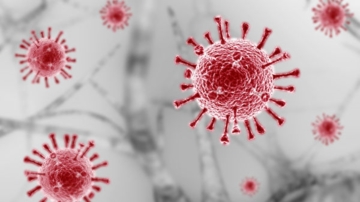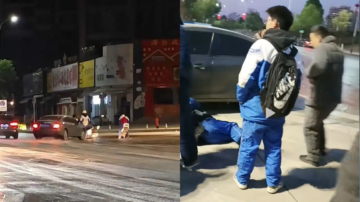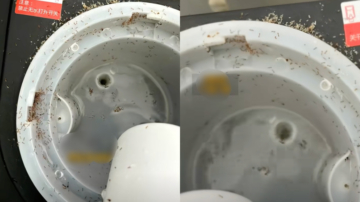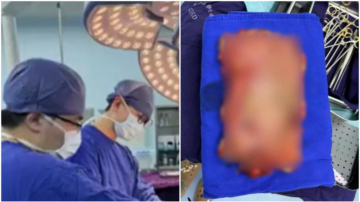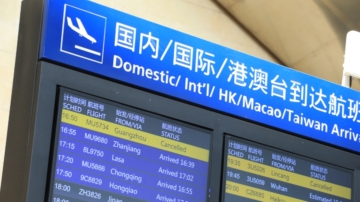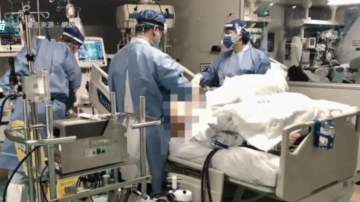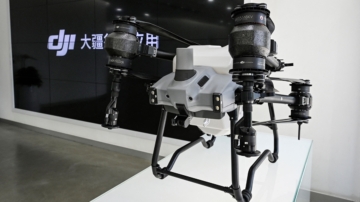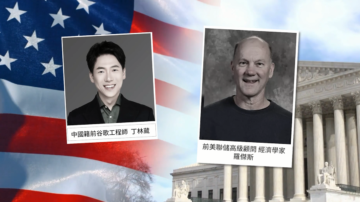【新唐人2013年10月17日訊】中國各地將設立「新聞道德自律委員會」,目前已經在5省市試點。對此,中國資深媒體人表示,中國大陸的新聞單位,被稱為「黨的陣地」,而記者是「黨的喉舌」,黨想說甚麼就幫著說甚麼,雖然有一些記者,願意履行報導事實真相的責任,但下場往往都非常悲慘,現在中共又要求「新聞自律」,看來,「中國不需要記者,有事發個通稿就好了。」
中共武漢市委機關報《長江日報》報導,官方的「全國新聞工作者協會(大陸記協)」將設立「新聞道德自律委員會」,目前在上海、浙江、河北、山東和湖北五省市進行試點。
北京原《百姓》雜誌主編、資深媒體人黃良天:「記者的職業道德、職業操守全世界都有共同的準則。規範的目地就是全國報紙都一個樣,那麼要發那麼多報紙幹甚麼﹖每一個人都講的同一個語言,那要那麼多記者幹甚麼﹖發個通稿不就得了嗎?」
在中國新浪微博上,有超過90%的網民,譏諷當局成立所謂的記者自律委員會。
黃良天:「記者利用一些政策的空隙,幹點記者應該幹的事情,但是結局往往都是悲劇的。拿我自己而言,現在已經非常邊緣化,你根本就沒有辦法去主持一個新聞單位,或者一個電視節目。甚至你發表的一些講話的渠道,(中共)都給你堵死了。」
據了解,北京《百姓》雜誌,是農業部旗下月刊,在原雜誌主編黃良天的領導下,不斷揭露徵地、拆遷等當局視為敏感的問題,因此經常遭到當局的騷擾和整肅。2006年年底,黃良天突然被當局調離雜誌主編職務,雖然上級單位聲稱黃良天的調職是崗位輪換,但內部人士透露,當局想藉由撤換主編而改變雜誌風格。同時,黃良天被安排到《農產品市場週刊》,不再涉及社會新聞報導。
美國國務院國際信息局(U.S. Department of State's Bureau of International Information Programs)出版物——《獨立新聞工作手冊》(Handbook of Independent Journalism)中提到,新聞工作的第一職責是符合事實﹔獨立於報導對像﹔成為權力的獨立監督者﹔必須能夠根據他們的個人良知行事等。這些信條被民主社會裡的新聞工作者所遵行。
黃良天:「大陸的記者是有本質差別的,中國對記者的定義是黨的新聞工作者,對於記者來說,是黨的喉舌,黨說甚麼,你幫它說甚麼。」
監督公權力,曝光醜惡,是記者的天職,但是在中國大陸,這樣的記者,卻遭到打壓。
2010年7月,《經濟觀察報》記者仇子明,因報導上市公司「凱恩」的交易內幕,遭到公司所在地——浙江省麗水市遂昌縣公安局網上通緝。
2012年,《西安晚報》記者石俊榮,因報導「天價煙」被停職。
今年3月,公民記者李建軍,因發帖舉報山西省水利部門腐敗,李建軍不但被抄家,還被傳喚問話近24個小時。
廣州《新快報》記者劉虎,今年7月29號通過個人微博,實名舉報中共工商總局現任副局長馬正其嚴重瀆職。10月10號,劉虎被檢方以「誹謗罪」批准逮捕。
而屢遭迫害的原《經濟觀察報》調查記者王克勤,在接受《新唐人》採訪時表示不願多說。
中國原《經濟觀察報》調查記者王克勤:「記者的天職是說出真相和事實,我不方便談了,我現在也沒做記者。」
王克勤1989年開始在《甘肅經濟日報》當記者。2011年9月,加入《經濟觀察報》擔任總編助理。在他擔任記者期間,先後推出震驚中國海內外的《北京計程車業壟斷黑幕》、《山西疫苗亂象調查》等一系列調查報導,王克勤因此被業界稱為「中國揭黑記者第一人」。
今年3月,媒體紛紛報導王克勤從《經濟觀察報》「被下課」。他離開報社的當天,在新浪微網誌發帖說﹕當下中國,為權貴代言者眾,替蒼生直言者稀。
採訪編輯/常春 後製/李勇
Journalism Self-discipline?
Journalist: China does not need reporters.
China recently set up 5 pilot stations for
Journalism Ethics and Self-Discipline Committee.
A senior Chinese journalist comments that the news agencies
are the CCP front in China.
Those who reported true news are often faced with tragedy.
As for the "self-discipline", it is stated: China does not
need journalists, but official statement.
According to Changjiang Daily, All-China Journalists'
Association are in the process of organizing the
Journalism Ethics and Self-Discipline Committee.
So far, 5 pilot stations have been set up in Shanghai,
Zhejiang, Hebei, Shandong and Hubei.
Huang Liangtian, former chief editor of Beijing Baixing magazine:
There is a professional ethics standard for reporters
around the world.
The regime disciplines every reporter to speak the same.
Why do we need reporters?
A statement will take care of it.
More than 90% of Sina microblogging users criticized
the so-called self-discipline committee.
Huang Liangtian: Journalists who reported along
the policy gaps often met tragedy.
Take myself as an example,
I have been marginalized.
I can't host news or any program.
The Communist regime has blocked every possible channel.
Baixing magazine is a monthly magazine under the
Ministry of Agriculture.
When Huang Liangtian was leading the magazine,
the authorities carried out harassment and purge against
the magazine due to reports on sensitive issues such as
land acquisition and forced demolition.
At the end of 2006, Huang Liangtian was suddenly removed
from the magazine's editor position.
The authorities claimed it was a rotation.
An insider revealed that he was removed
to change the magazine style.
Huang Liangtian, who arranged the Agricultural Market Weekly,
was no longer involved in social news.
According to the Handbook of Independent Journalism,
published by the US Department of State's Bureau of
International Information Programs:
Journalism's first obligation is to tell the truth.
Its practitioners must maintain an independence
from those they cover.
Journalism must serve as an independent monitor of power.
Its practitioners must be allowed to exercise
their personal conscience.
These are clear principles that journalists
in a democratic society agree on.
Huang Liangtian: The mainland reporters are
different from others.
In China, journalists are defined as workers of
the Communist party.
They are the party's mouthpiece, and may only
speak what's allowed.
A reporter's duty is to supervise the authority
and expose the ugly.
In China, such reporters will only become suppressed.
Chou Ziming, a journalist from the Economic Observer,
became wanted online in July 2010, by the Zhejiang police
for reporting the insider trading of a listed company, Kane,
located in Zhejiang.
2012, Xi'an Evening News reporter Shi Junrong was suspended
due to his report on "expensive cigarettes."
This March, citizen reporter Li Jianjun experienced a
house search and police questioning for nearly 24 hours
due to his online post, which exposed the corrupt
water sector in the Shanxi Province.
Guangzhou Xinquai News reporter Liu Hu exposed
the serious dereliction of duty of current deputy of
State Administration for Industry and Commerce, Ma Zhengqi,
on 29th July through personal microblogging.
On 10th October, Liu Hu was arrested on the charge of libel.
Wang Keqin, former Economic Observer investigative reporter,
has been through multiple persecutions.
He was reluctant to say much during his interview with NTD.
Wang Keqin, former Economic Observer investigative reporter:
It is the reporter's duty to tell the truth and report on the facts.
It is not convenient for me to say anything now.
I am no longer a reporter.
Wang Keqin began as a reporter for
Gansu Economic Daily in 1989.
Since September 2011, he joined the Economic Observer
as an editorial assistant.
His series of investigative reports such as
the "shady Beijing taxi industry monopoly" and
"Investigation of the chaotic vaccines in Shanxi" have won
him the title, "the first whistle-blowing reporter in China".
This March, Wang Keqin was reportedly removed
from the Economic Observer.
He posted a Sina blog on the day he left his work:
In contemporary China, there are many who endorse the
powerful, but few speak out for the public.
中共武漢市委機關報《長江日報》報導,官方的「全國新聞工作者協會(大陸記協)」將設立「新聞道德自律委員會」,目前在上海、浙江、河北、山東和湖北五省市進行試點。
北京原《百姓》雜誌主編、資深媒體人黃良天:「記者的職業道德、職業操守全世界都有共同的準則。規範的目地就是全國報紙都一個樣,那麼要發那麼多報紙幹甚麼﹖每一個人都講的同一個語言,那要那麼多記者幹甚麼﹖發個通稿不就得了嗎?」
在中國新浪微博上,有超過90%的網民,譏諷當局成立所謂的記者自律委員會。
黃良天:「記者利用一些政策的空隙,幹點記者應該幹的事情,但是結局往往都是悲劇的。拿我自己而言,現在已經非常邊緣化,你根本就沒有辦法去主持一個新聞單位,或者一個電視節目。甚至你發表的一些講話的渠道,(中共)都給你堵死了。」
據了解,北京《百姓》雜誌,是農業部旗下月刊,在原雜誌主編黃良天的領導下,不斷揭露徵地、拆遷等當局視為敏感的問題,因此經常遭到當局的騷擾和整肅。2006年年底,黃良天突然被當局調離雜誌主編職務,雖然上級單位聲稱黃良天的調職是崗位輪換,但內部人士透露,當局想藉由撤換主編而改變雜誌風格。同時,黃良天被安排到《農產品市場週刊》,不再涉及社會新聞報導。
美國國務院國際信息局(U.S. Department of State's Bureau of International Information Programs)出版物——《獨立新聞工作手冊》(Handbook of Independent Journalism)中提到,新聞工作的第一職責是符合事實﹔獨立於報導對像﹔成為權力的獨立監督者﹔必須能夠根據他們的個人良知行事等。這些信條被民主社會裡的新聞工作者所遵行。
黃良天:「大陸的記者是有本質差別的,中國對記者的定義是黨的新聞工作者,對於記者來說,是黨的喉舌,黨說甚麼,你幫它說甚麼。」
監督公權力,曝光醜惡,是記者的天職,但是在中國大陸,這樣的記者,卻遭到打壓。
2010年7月,《經濟觀察報》記者仇子明,因報導上市公司「凱恩」的交易內幕,遭到公司所在地——浙江省麗水市遂昌縣公安局網上通緝。
2012年,《西安晚報》記者石俊榮,因報導「天價煙」被停職。
今年3月,公民記者李建軍,因發帖舉報山西省水利部門腐敗,李建軍不但被抄家,還被傳喚問話近24個小時。
廣州《新快報》記者劉虎,今年7月29號通過個人微博,實名舉報中共工商總局現任副局長馬正其嚴重瀆職。10月10號,劉虎被檢方以「誹謗罪」批准逮捕。
而屢遭迫害的原《經濟觀察報》調查記者王克勤,在接受《新唐人》採訪時表示不願多說。
中國原《經濟觀察報》調查記者王克勤:「記者的天職是說出真相和事實,我不方便談了,我現在也沒做記者。」
王克勤1989年開始在《甘肅經濟日報》當記者。2011年9月,加入《經濟觀察報》擔任總編助理。在他擔任記者期間,先後推出震驚中國海內外的《北京計程車業壟斷黑幕》、《山西疫苗亂象調查》等一系列調查報導,王克勤因此被業界稱為「中國揭黑記者第一人」。
今年3月,媒體紛紛報導王克勤從《經濟觀察報》「被下課」。他離開報社的當天,在新浪微網誌發帖說﹕當下中國,為權貴代言者眾,替蒼生直言者稀。
採訪編輯/常春 後製/李勇
Journalism Self-discipline?
Journalist: China does not need reporters.
China recently set up 5 pilot stations for
Journalism Ethics and Self-Discipline Committee.
A senior Chinese journalist comments that the news agencies
are the CCP front in China.
Those who reported true news are often faced with tragedy.
As for the "self-discipline", it is stated: China does not
need journalists, but official statement.
According to Changjiang Daily, All-China Journalists'
Association are in the process of organizing the
Journalism Ethics and Self-Discipline Committee.
So far, 5 pilot stations have been set up in Shanghai,
Zhejiang, Hebei, Shandong and Hubei.
Huang Liangtian, former chief editor of Beijing Baixing magazine:
There is a professional ethics standard for reporters
around the world.
The regime disciplines every reporter to speak the same.
Why do we need reporters?
A statement will take care of it.
More than 90% of Sina microblogging users criticized
the so-called self-discipline committee.
Huang Liangtian: Journalists who reported along
the policy gaps often met tragedy.
Take myself as an example,
I have been marginalized.
I can't host news or any program.
The Communist regime has blocked every possible channel.
Baixing magazine is a monthly magazine under the
Ministry of Agriculture.
When Huang Liangtian was leading the magazine,
the authorities carried out harassment and purge against
the magazine due to reports on sensitive issues such as
land acquisition and forced demolition.
At the end of 2006, Huang Liangtian was suddenly removed
from the magazine's editor position.
The authorities claimed it was a rotation.
An insider revealed that he was removed
to change the magazine style.
Huang Liangtian, who arranged the Agricultural Market Weekly,
was no longer involved in social news.
According to the Handbook of Independent Journalism,
published by the US Department of State's Bureau of
International Information Programs:
Journalism's first obligation is to tell the truth.
Its practitioners must maintain an independence
from those they cover.
Journalism must serve as an independent monitor of power.
Its practitioners must be allowed to exercise
their personal conscience.
These are clear principles that journalists
in a democratic society agree on.
Huang Liangtian: The mainland reporters are
different from others.
In China, journalists are defined as workers of
the Communist party.
They are the party's mouthpiece, and may only
speak what's allowed.
A reporter's duty is to supervise the authority
and expose the ugly.
In China, such reporters will only become suppressed.
Chou Ziming, a journalist from the Economic Observer,
became wanted online in July 2010, by the Zhejiang police
for reporting the insider trading of a listed company, Kane,
located in Zhejiang.
2012, Xi'an Evening News reporter Shi Junrong was suspended
due to his report on "expensive cigarettes."
This March, citizen reporter Li Jianjun experienced a
house search and police questioning for nearly 24 hours
due to his online post, which exposed the corrupt
water sector in the Shanxi Province.
Guangzhou Xinquai News reporter Liu Hu exposed
the serious dereliction of duty of current deputy of
State Administration for Industry and Commerce, Ma Zhengqi,
on 29th July through personal microblogging.
On 10th October, Liu Hu was arrested on the charge of libel.
Wang Keqin, former Economic Observer investigative reporter,
has been through multiple persecutions.
He was reluctant to say much during his interview with NTD.
Wang Keqin, former Economic Observer investigative reporter:
It is the reporter's duty to tell the truth and report on the facts.
It is not convenient for me to say anything now.
I am no longer a reporter.
Wang Keqin began as a reporter for
Gansu Economic Daily in 1989.
Since September 2011, he joined the Economic Observer
as an editorial assistant.
His series of investigative reports such as
the "shady Beijing taxi industry monopoly" and
"Investigation of the chaotic vaccines in Shanxi" have won
him the title, "the first whistle-blowing reporter in China".
This March, Wang Keqin was reportedly removed
from the Economic Observer.
He posted a Sina blog on the day he left his work:
In contemporary China, there are many who endorse the
powerful, but few speak out for the public.

